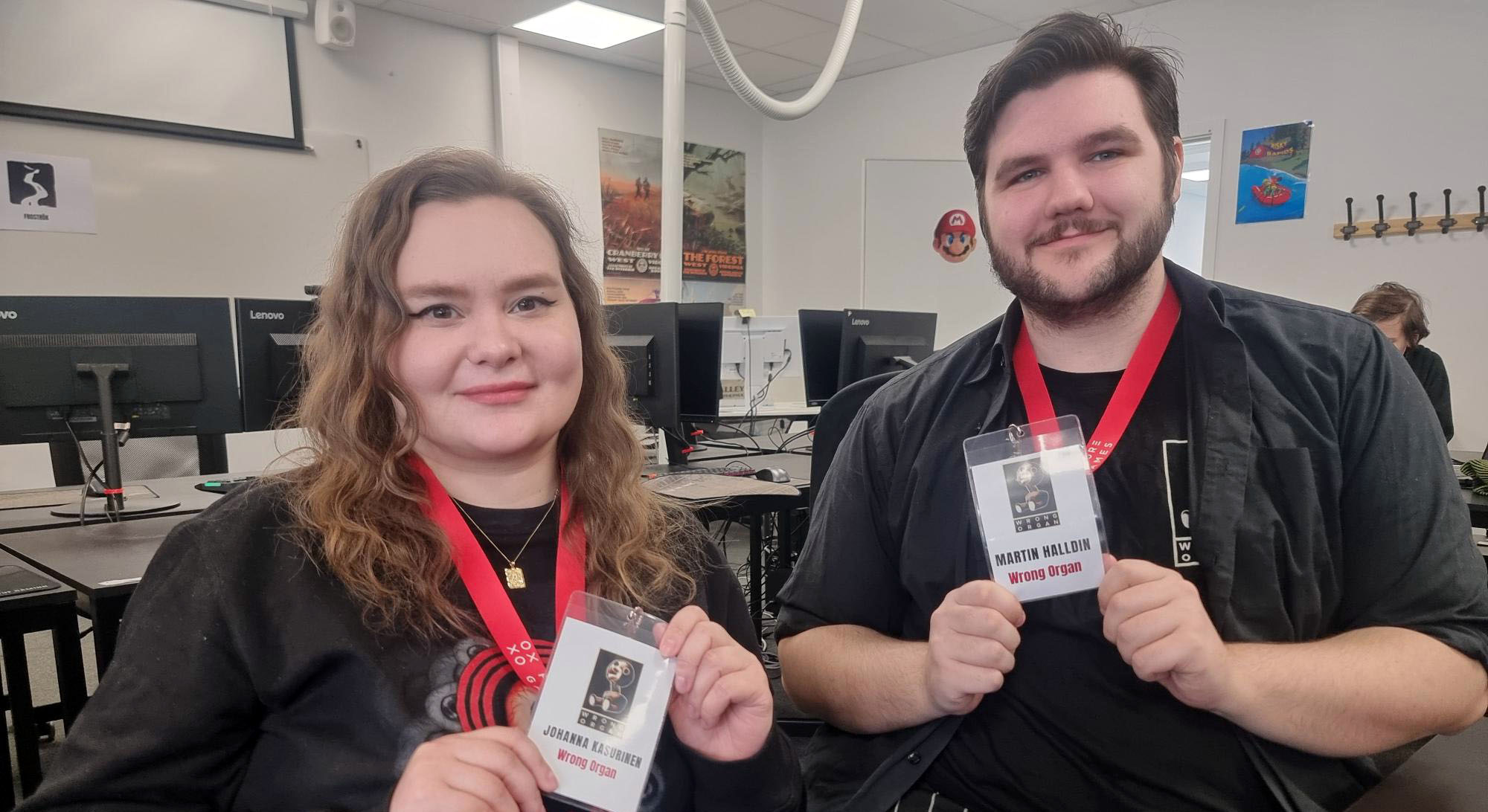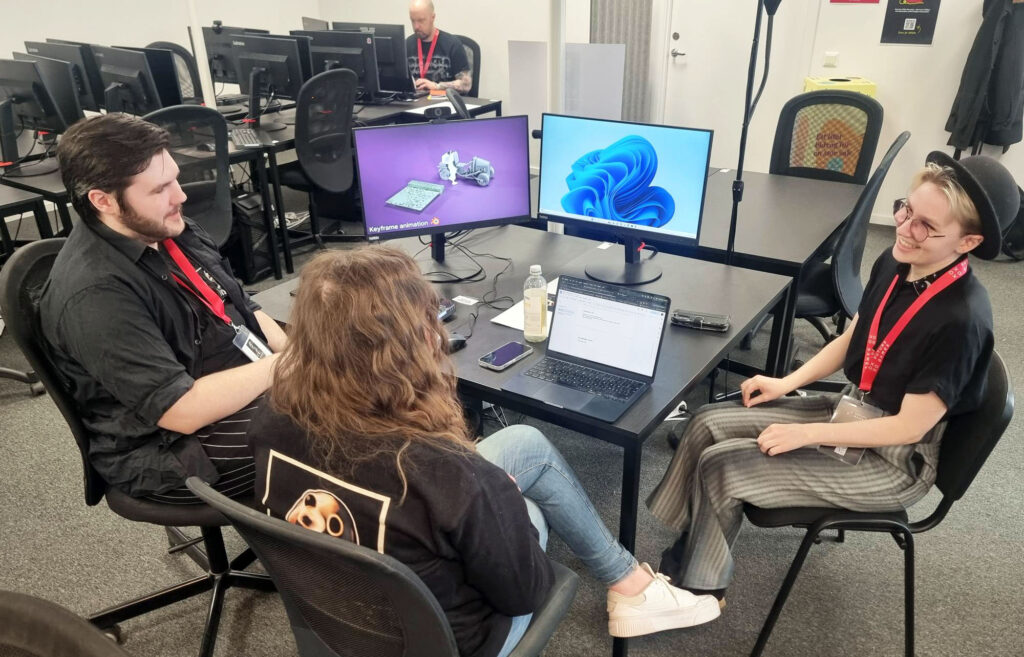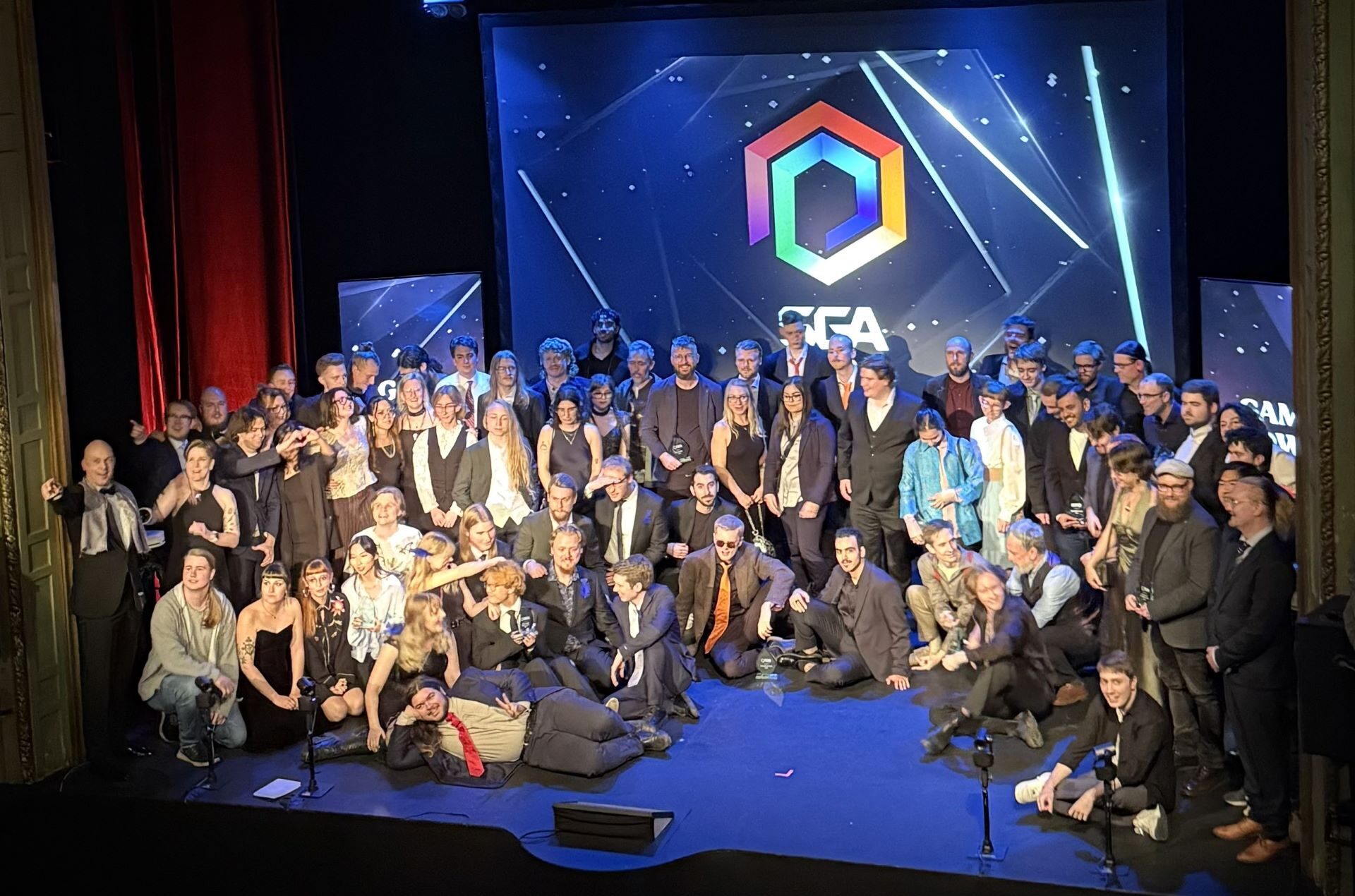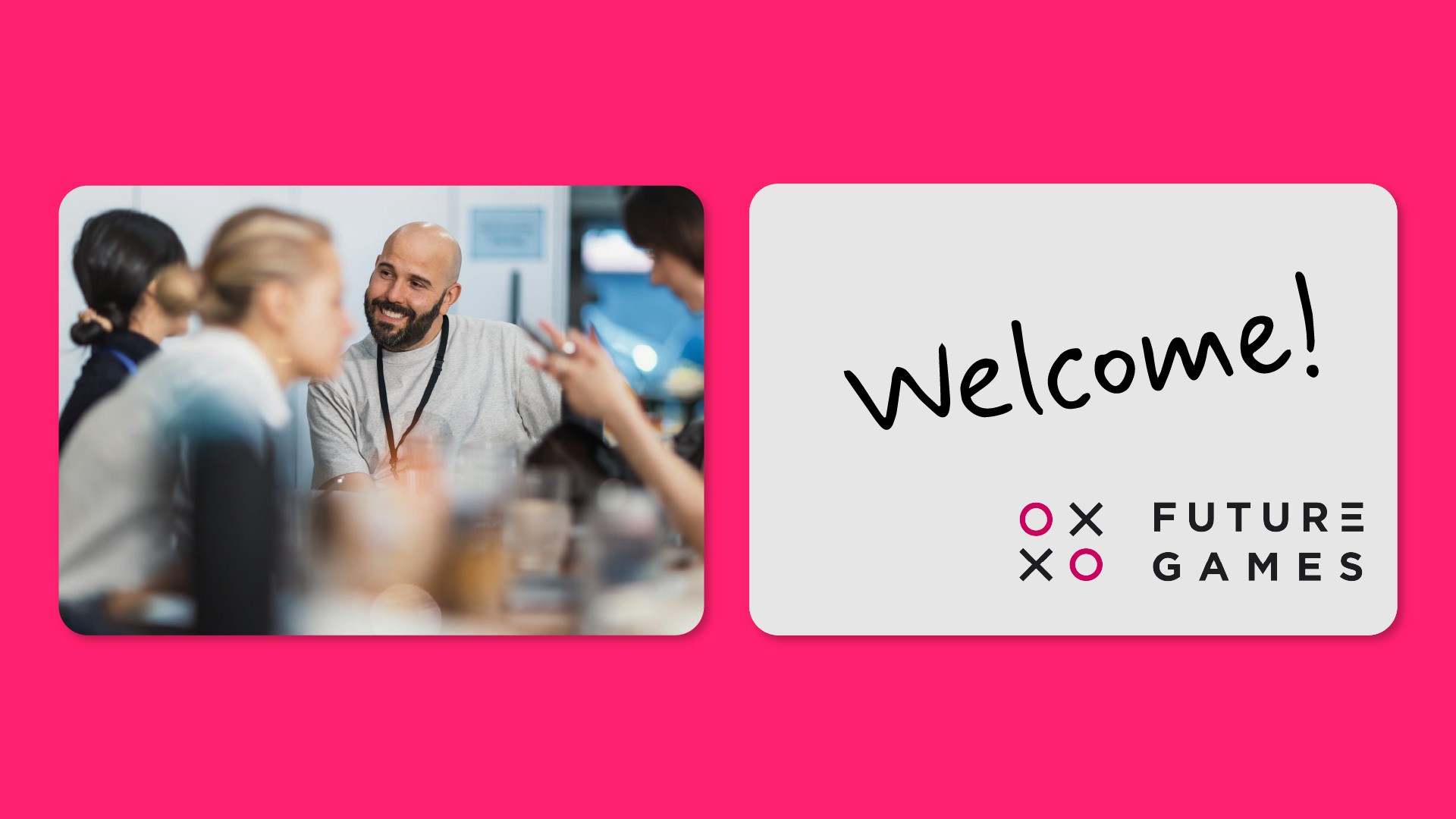Wrong Organ – a Futuregames success story
Wrong Organ, the studio behind the dark indie horror hit Mouthwashing is a true Futuregames success story – a studio founded by a group of former students.

Futuregames Q&A
” I had a regular business desk job before coming to Futuregames. Getting into the programme gave me the confidence and the opportunity to be able to tackle aspects of game development I’d always thought were too difficult for me”
Johanna Kasurinen
What began as a student collaboration at Futuregames has evolved into one of the most distinctive voices in the indie game scene. Wrong Organ was founded by a group of Futuregames classmates driven by a shared creative vision.
Kai Moore: All the founders of Wrong Organ met while attending Futuregames’ Game Design class of 2021. The inciting thing for us was mainly How Fish is Made, which was originally a school project. The design document was actually what Johanna submitted in her application, then Martin and Jeff offered to help make it into a game. They released it for free on Steam and it got a lot of attention. Throughout the rest of our time attending Futuregames, we had the chance to work together, whether that was through school projects, or games we pursued making in our spare time. Over time, we realized our overlap in the kinds of games we wanted to pursue creating, plus the evident success behind How Fish is Made, made us start Wrong Organ to keep making games together and hopefully turn our passion into a sustainable studio.
“The absolute most valuable part about attending Futuregames was meeting the other students”
What did your time at Futuregames mean to you?
Johanna Kasurinen: I’d always thought I just didn’t have the base skills necessary to become a game developer. I had a regular business desk job before coming to Futuregames. Getting into the programme gave me the confidence and the opportunity to be able to tackle aspects of game development I’d always thought were too difficult for me. It forces you to challenge yourself but you also figure out aspects of game development that you didn’t think you’d like and that you can learn more about. All in all though, the absolute most valuable part about attending Futuregames was meeting the other students. You learn to work in different teams and roles, solving new issues with all types of people for the projects. You meet people who will be your peers, coworkers and friends within the industry for your entire career.
Martin Halldin: I went in thinking I wanted to become a generalist game designer or an indie developer and that FG was the best place to learn as much about those things as possible. But over time I found that my niche had always been sound design and music, because that’s what I gravitated towards in each game project.
What do you carry with you from the education into your roles today? What was the best part?
Johanna: I think personally it equipped me with a “if I don’t know how to do something, just figure out a way” mindset. When writing my first game narrative I didn’t know how a multiple choice script was supposed to be formatted, so I just tackled it in a manner that made the most sense to me after looking into the scripts of various other games. If I hadn’t been pushed to just make something I think I could’ve sat on the uncertainty of beginning that task for a long time. Simply starting something is usually much more valuable than trying to hit some high standard from the beginning.
Martin : The best part of the education was meeting my peers. Wrong Organ was formed during the education by all of us getting to know each other and working together through the game projects and I’m thankful for that opportunity. Being supported by the school, our teachers and friends was a fantastic opportunity.

How do you succeed as a game studio in today’s industry?
Johanna: This industry is constantly, rapidly changing. So even if something seems like a “safe move” business-wise one moment, the gaming landscape can change within a year to where that simply isn’t true anymore. Even smaller indie titles can’t survive trying to chase trends. That’s why our approach has from the beginning been that above all else we want to stick to our own creative vision. We make games that we want to play, we tell stories that we feel need telling. Even if they’re strange or “non-commercial” or challenging. It’s what makes us happy as game developers. All we can do is hope that the vision and execution of our games resonate with people.
“A good game designer is a person who is motivated and curious”
What does it take to become a game designer – or to succeed in other roles in the industry – today?
Johanna: Having a point of view is important. An interest in games and how they work underneath the hood is a given, but having a desire to create something new is what really differentiates you from the pack. What you create doesn’t even have to be any good at first. Not everyone needs to understand the vision. It should just be something that excites you. You can feel it when games have been made with that kind of energy behind them. For narrative designers and artists specifically I always have the same advice, but it applies to all aspects of game design. Get inspiration outside of games or books, outside of media overall. Having hobbies and trying new real world things is essential to innovation and finding unique ideas.
Martin: A good game designer is a person who is motivated and curious. You don’t need to see each task as a challenge or as a problem to solve, but having a vision of what you want to make and finding any way possible to get close to that vision is what will make you stand out. I’m speaking from an indie developers point of view but I believe you have to drive the project forward any way you can. That means if you don’t know how to do something you learn it yourself. To quote Katya Zamolodchikova: Be your own dentist.
What are the future plans for Wrong Organ?
Kai: As a studio, our dream is to create games that have our strange atmosphere, tone, and aesthetic. We want those core elements to be present no matter the genre of game we pursue. That idea of people not knowing what to expect from us, but knowing it’ll have that Wrong Organ vibe is definitely what we’re hoping to establish going forward. We believe that How Fish is Made and Mouthwashing has proven our ability to make engaging narrative experiences. With our next game we want to show our studio’s capacity to make strong gameplay driven experiences as well.
More to Discover
Stay up-to-date with the latest stories, insights, and highlights from Futuregames. See what’s in the spotlight and dive into our world of game development and tech.

Futuregames students win at SGA 2025
Futuregames talent shone at this year’s Swedish Game Awards, hosted by Dataspelsbranschen. With Steamwrecked crowned Gamer’s Choice Winner and several other projects earning nominations, our students and alumni proved once…

Tech Industry Networking Event 2025
An afternoon of talks, networking and new connections. Companies are invited to meet our students specializing in agile project management, UX design, and frontend development – the next generation of…

From dance floors and game stores – to game design!
Two unique journeys, one shared passion. Isabelle Heiskanen, an experienced store manager with a lifelong love for gaming, and Cecilia Wretemark-Hauck, a professional dancer turned game design student, are bringing…


